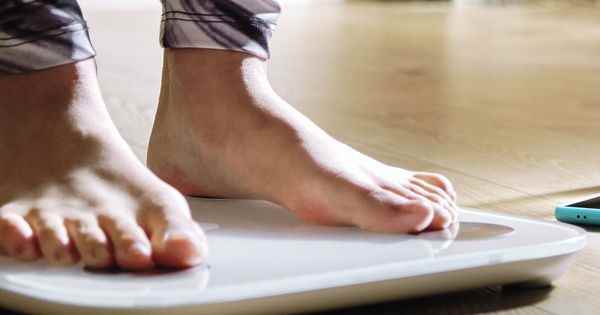Published ,
Reading 2 mins.
According to a Polish study published in the journal Scientific Reports, less than two thirds of adults do not know their weight. A fact that could reinforce obesity and cause eating disorders.
According to a recent Polish study, not knowing your weight and height could lead to eating disorders. The study, published on January 27, 2022 in the journal Scientific Reports, reveals that less than two-thirds of adults do not know their weight. A worrying result for researchers who believe that “disorders of body self-perception and body dissatisfaction may be the development of eating disorders, such as anorexia nervosa or binge eating, a major risk factor for the development of obesity ”.
To arrive at this result, the Polish researchers based themselves on 744 people aged 36 on average. Of those studied, 21 had a low BMI, 326 were normal weight, 221 were overweight, and 176 were obese. Thus, the objective was to analyze how each individual perceives himself.
A poor self-perception
After asking the question: “Do you think you are: underweight / normal weight / overweight / obese?”, the researchers found that 63.5% of people correctly assessed their weight. On the other hand, many underestimated their weight and height. Among overweight people, just under half consider themselves to be normal weight and only 2.8% consider themselves overweight. In total, 41.6% of obese people underestimate their body mass index (BMI). “It has also been shown that obese subjects more often perceive obesity in others than in themselves. These disturbances in the perception of one’s own body size may be the reason for not treating obesity”reveals the survey.
In France, obesity affects 8 million people, including 500,000 considered to be severely obese according to the website of the Ministry of Solidarity and Health. Not knowing your BMI is tantamount to neglecting the treatment of this disease. For researchers, “subjects considering themselves overweight or normal weight will not undertake treatment for obesity. It can also be difficult to accept the diagnosis made by the doctor. It seems that self-assessment of body weight and height should be integrated into the daily clinical management of obese people”.
Women more likely to be dissatisfied with their bodies than men
According to the study, this difference in self-perception is seen in particular more among women than men. Researchers explain this phenomenon by the state of our current society: “Most societies have almost always created ideals of beauty and attractiveness, which are often extremely difficult, if not impossible, to achieve. Traditionally, mass media was thought to play a major role in creating a very attractive and slim figure, especially among women in Western culture. Seeing highly attractive individuals is thought to lead to a process of social comparison, and this process (…) is associated with higher body dissatisfaction in both women and men”.
